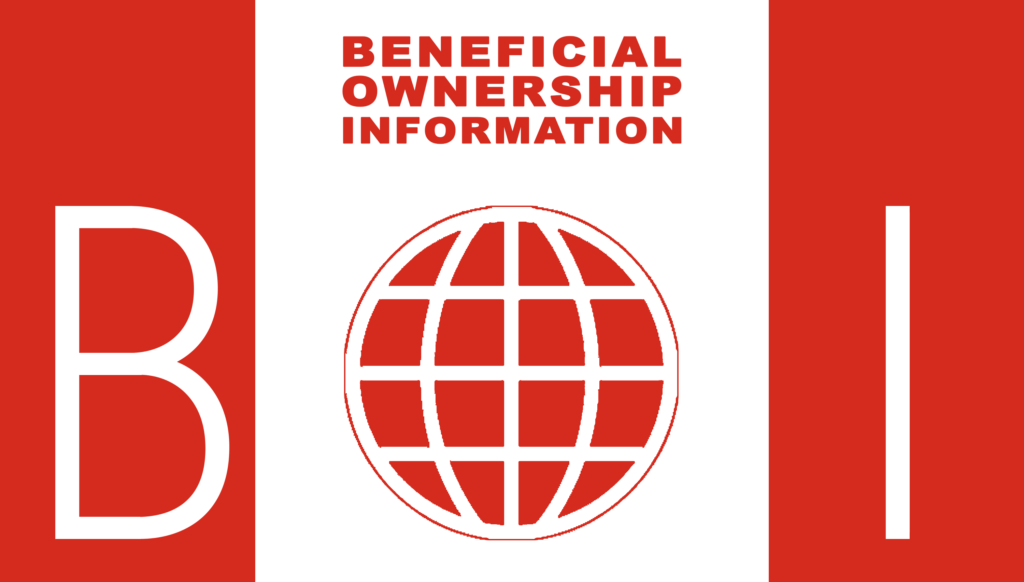The State of Play and Future of Beneficial Ownership in Canada
In recent years, global attention on beneficial ownership transparency has intensified to combat financial crimes, tax evasion, and corruption. Canada has actively engaged in this effort, striving to enhance corporate ownership transparency and align with international best practices. Notably, in November 2023, Canada enacted legislation to establish a national public beneficial ownership registry, mandating companies to disclose their true owners. This initiative aims to prevent the misuse of anonymous entities for illicit activities. However, challenges persist, including ensuring data accuracy, inter-jurisdictional coordination, and balancing privacy concerns with transparency. Addressing these issues presents opportunities for Canada to strengthen its regulatory framework, improve enforcement mechanisms, and foster greater collaboration among provinces and territories to create a cohesive and effective system.
Canada’s Approach to Beneficial Ownership
Canada’s beneficial ownership framework has evolved significantly in recent years, particularly with the introduction of requirements for corporations to maintain registers of Individuals with Significant Control (ISCs). This initiative enhances corporate transparency and aligns with Financial Action Task Force (FATF) recommendations, which stress the importance of disclosing beneficial ownership information to prevent the misuse of corporate structures for money laundering, tax evasion, and financial crimes. As Canada moves towards a national public beneficial ownership registry, the focus remains on improving compliance, enforcement, and data accuracy while addressing privacy concerns and strengthening collaboration between federal and provincial authorities.
Beneficial Ownership Registry Progress
In 2023, the Canadian government unveiled plans to establish a publicly accessible beneficial ownership registry, set to be operational by the end of 2025. The initiative seeks to:
- Enhance Transparency: Provide public access to information about the beneficial owners of corporations
- Support Law Enforcement: Enable authorities to effectively investigate and prosecute financial crimes
- Improve Compliance: Facilitate due diligence for financial institutions and other obligated entities
While establishing a public beneficial ownership registry marks significant progress, challenges persist. Ensuring data accuracy is paramount, as inaccuracies can undermine the registry’s effectiveness. Balancing transparency with privacy rights requires careful consideration to protect sensitive information. Additionally, coordinating across federal, provincial, and territorial jurisdictions is essential to create a cohesive and comprehensive framework. Addressing these issues is crucial for the registry’s success in combating financial crimes.
Discrepancy Reporting
Financial institutions and reporting entities play a crucial role in identifying inconsistencies between a client’s declared beneficial ownership information and public records. As part of Canada’s framework, discrepancy reporting enhances transparency, ensures data accuracy, and helps detect potential financial crimes by flagging mismatches that require further investigation by regulatory authorities. The requirement will:
- Promote Accountability: Ensure that beneficial ownership information is accurate and up to date
- Support Risk Management: Help financial institutions detect and mitigate potential financial crime risks
While some progress has been made, discrepancy reporting faces challenges related to regulatory clarity, the burden on reporting entities, and the need for robust enforcement mechanisms.
Challenges in Implementation
Implementing Canada’s beneficial ownership initiatives presents several challenges:
Privacy vs. Transparency
Balancing public access to ownership information with individual privacy rights is contentious. While transparency deters illicit activities, safeguards are necessary to prevent misuse of publicly available data. The federal government has proposed an exemption regime to protect individuals who may face harm from public disclosure, including minors.
Accuracy and Verification
Ensuring the accuracy of information submitted to the registry is critical. Without proper verification mechanisms, the registry’s reliability could be undermined. The government has proposed authorizing the Canada Revenue Agency to share certain information with Corporations Canada to help validate and verify beneficial ownership information.
Provincial Coordination
Canada’s federal structure complicates the implementation of a unified registry. Harmonizing provincial and federal requirements is essential for seamless functionality. Stakeholders have called on the federal government to take a lead role in ensuring a seamless and standardized system interoperable with existing federal and provincial registries to reduce the need for multiple filings and facilitate compliance.
Compliance Burden
Reporting entities may face challenges integrating discrepancy reporting into their existing compliance frameworks, particularly smaller institutions with limited resources. The proposed legislation includes robust criminal and monetary penalties for non-compliance, which may add to the compliance burden.
Addressing these challenges requires a balanced approach that upholds transparency, ensures data accuracy, respects privacy rights, and considers the operational capacities of reporting entities.
The Transparency Ahead
On November 30, 2024, Canada’s Department of Finance unveiled draft amendments to the Proceeds of Crime (Money Laundering) and Terrorist Financing Act (PCMLTFA), inviting public consultation until December 30, 2024. These amendments aim to enhance beneficial ownership transparency, aligning with anti-money laundering (AML) efforts and refining Know Your Customer (KYC) protocols for reporting entities.
In January 2024, amendments to the Canada Business Corporations Act (CBCA) came into force, requiring private CBCA corporations to submit information about their Individuals with Significant Control (ISCs) to Corporations Canada. This information must be filed during incorporation, annually, within 15 days of any changes, after amalgamation, and upon continuance to federal jurisdiction. The goal is to create a public, searchable beneficial ownership registry to combat financial crimes.
Proposed Amendments
The November 2024 draft amendments introduce a discrepancy reporting requirement for entities regulated by the Financial Transactions and Reports Analysis Centre of Canada (FINTRAC). These entities must compare the beneficial ownership information obtained from their CBCA corporate clients against the public registry. If a material discrepancy is identified, it must be reported to the Director under the CBCA within 15 days, including details about the reporting entity. The term “material discrepancy” is not explicitly defined but excludes minor errors such as spelling mistakes or address variations.
Implications for Reporting Entities
FINTRAC-regulated entities, including financial institutions, securities dealers, and life insurance companies, are already mandated to obtain and verify beneficial ownership information from their corporate clients. The proposed amendments add the obligation to cross-reference this information with the CBCA registry and report significant inconsistencies. This process necessitates updates to existing compliance programs, ensuring that policies and procedures are in place to consult the registry and address discrepancies promptly.
The draft amendments signify a significant advancement in Canada’s commitment to enhancing beneficial ownership transparency and strengthening its AML regime. By mandating discrepancy reporting and fostering greater collaboration between reporting entities and regulatory bodies, Canada aims to create a more transparent and secure financial environment. Addressing the associated challenges will require careful consideration and collaboration among stakeholders to balance transparency, privacy, and operational feasibility.
Global Alignment with Beneficial Ownership Requirements
Canada is actively enhancing its beneficial ownership framework to align with global standards set by the Financial Action Task Force (FATF), aiming to combat financial crimes such as money laundering and tax evasion. In contrast to countries like the United Kingdom, which have implemented publicly accessible registries, Canada’s approach is more gradual, reflecting its federal structure and privacy considerations.
A significant challenge in establishing an effective beneficial ownership registry is ensuring data accuracy. Without robust verification mechanisms, the information may be unreliable, undermining efforts to combat illicit activities. The FATF emphasizes that countries face significant challenges in implementing measures to ensure the timely availability of accurate beneficial ownership information.
Inter-jurisdictional coordination is another critical issue, especially in federations like Canada. Harmonizing regulations across federal, provincial, and territorial levels is essential for a cohesive system. Efforts are underway to coordinate and enhance the openness of corporate ownership while protecting privacy.
Balancing transparency with individual privacy rights remains a contentious aspect. While public access to ownership information can deter illicit activities, it also raises concerns about the potential misuse of personal data. Discussions are ongoing about establishing public registries of beneficial ownership and the implications for privacy.
Canada’s emphasis on discrepancy reporting, where financial institutions identify and report inconsistencies in clients’ declared beneficial ownership information, is a progressive step. This mechanism enhances the accuracy of data and integrates beneficial ownership information into anti-money laundering processes. However, achieving consistency across provinces and aligning with international standards are crucial for Canada to remain competitive and effective in the global fight against financial crime. The federal government continues to take steps to increase transparency with its proposed public beneficial ownership registry for privately held federally incorporated corporations.


In summary, while Canada’s phased approach considers its unique federal structure and privacy concerns, addressing challenges related to data accuracy, inter-jurisdictional coordination, and transparency is essential. Successfully navigating these issues will position Canada as a strong participant in global efforts to enhance financial transparency and combat illicit financial activities.


